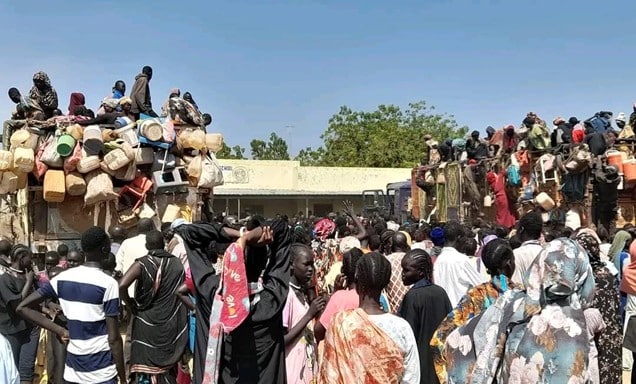Bring hope to forgotten conflicts
Abyei is a disputed borderland between Sudan and South Sudan. Full-scale war in Sudan has triggered a severe displacement crisis in Abyei, with refugees unable to access humanitarian assistance. With no formal government, the delivery of aid is logistically and politically difficult. (Inter)national organisations are either unable or unwilling to intervene.
The Wad Madani massacres
Wad Madani is the capital of Gezira State in Sudan. In January 2025, the Sudanese Armed Forces (SAF) recaptured Wad Madani from the paramilitary Rapid Support Forces (RSF). This led to a new wave of violence, which targeted South Sudanese nationals living in Wad Madani, and accused them of supporting the RSF and rebel groups.
Civilians were reportedly gunned down in the streets and thrown from bridges. Survivors of the Wad Madani massacres fled towards the South Sudan border, and hundreds have taken refuge in Abyei where they face new challenges for survival. They now seek shelter alongside individuals in Abyei who have fled brutal violence in Khartoum and other war-torn regions in the north of Sudan.

Local NGOs have taken steps to provide support to survivors of the Wad Madani massacres. The scale of displacement in Abyei is beyond their capacity to respond.
A deteriorating humanitarian crisis
Displaced families are stranded in Abyei, as resources are stretched beyond limits. The demand for humanitarian assistance has far exceeded local capacity. This leaves at-risk groups, such as women, children, and people with disabilities, vulnerable to exploitation.
All this makes Abyei one of the hardest places to do development - but hard does not mean impossible, and places like this are where development is needed the most.
A locally-led emergency response
In the short-term, Humanitarian Aid Relief Trust’s (HART) priorities are to:
- Strengthen food security in the region, prioritising vital nutritional support for displaced families.
- Provide shelter items to protect displaced populations from the rainy season and to reduce the risk of malaria-related illness.
- Support menstruating girls and women living in challenging conditions with female hygiene kits.
In the medium-term, HART is working alongside a network of local experts to lay the foundations for a more robust education system that prioritises:
- Formal teacher training to address the shortage of qualified teachers.
- Key infrastructure, such as the first library in the region.
- The improvement of digital and literacy skills for learners of all ages.
In the long-term, HART’s advocacy priorities are to:
- Put Abyei – known as the “biggest flashpoint state” between Sudan and South Sudan – on global aid agendas.
- Promote an inter-communal, locally coordinated humanitarian response.
